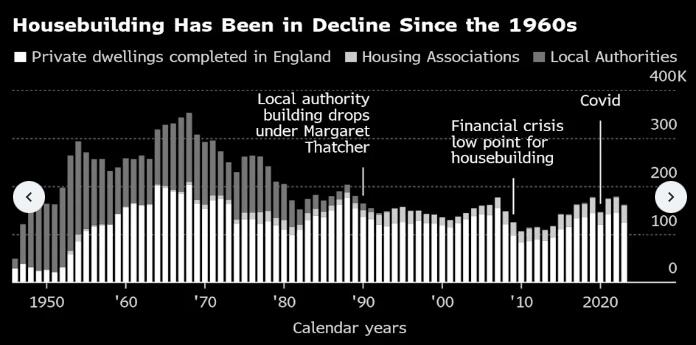Chancellor Rachel Reeves has announced a £2 billion investment in social and affordable housing, aiming to ease internal party tensions as Labour prepares to slash public spending in its upcoming spring budget. The initiative is part of Labour’s broader pledge to build 1.5 million new homes.

With pressure mounting over looming budget cuts, UK Chancellor of the Exchequer Rachel Reeves has pledged a £2 billion ($2.6 billion) housing fund aimed at boosting social and affordable home construction. The announcement comes just ahead of her highly anticipated spring fiscal statement, which is expected to unveil sweeping reductions in departmental spending.
The Treasury said the new funding would support projects capable of completion by mid-2029, aligning with Labour’s broader goal of delivering 1.5 million new homes during the current parliamentary term.
The funds are intended to finance the construction of up to 18,000 homes, while also creating jobs and economic opportunities, according to Reeves.
“We are fixing the housing crisis in this country with the biggest boost in social and affordable housebuilding in a generation,” Reeves said in a statement issued Tuesday.
The Chancellor will make the official announcement alongside Deputy Prime Minister Angela Rayner, who also serves as Housing Secretary, during a visit to Stoke-on-Trent.
Strategic Timing Amid Spending Cuts
The announcement is widely seen as a strategic move to placate Labour backbenchers, some of whom voiced concern last week over the government’s plan to cut £5 billion from welfare spending. Internal criticism has mounted, with some MPs accusing Reeves of veering toward an austerity-lite approach, despite prior commitments to avoid such policies.
One of the most vocal critics, Labour MP Rachael Maskell, warned that fiscal policy must be guided by compassion. “Fiscal rules have to come with a moral purpose,” she said in a Times Radio interview, urging the government not to balance the books at the expense of the vulnerable.
Balancing Act: Growth, Debt, and Internal Politics
Reeves is under pressure to meet her fiscal rules, as weak economic growth forecasts and rising debt-servicing costs narrow the government’s room for maneuver. While Labour has ruled out major tax increases or new borrowing, some members have called for a wealth tax or for maintaining taxes on tech giants to ease the squeeze on public services.
Adding to the internal discord, reports have emerged that the government is considering rolling back or eliminating a levy on large tech firms, a move that could prove controversial given the simultaneous cuts to social welfare and public programs.
Despite the tension, Labour’s housing agenda remains popular, and Tuesday’s announcement may help soften criticism ahead of more contentious budget details.
What’s Next
The Chancellor’s full spring statement is expected to provide further details on where cuts will fall, and how Labour intends to balance fiscal responsibility with its campaign promises on housing, jobs, and social equity.
With public trust—and party unity—on the line, Reeves’ economic vision faces its most critical test yet.